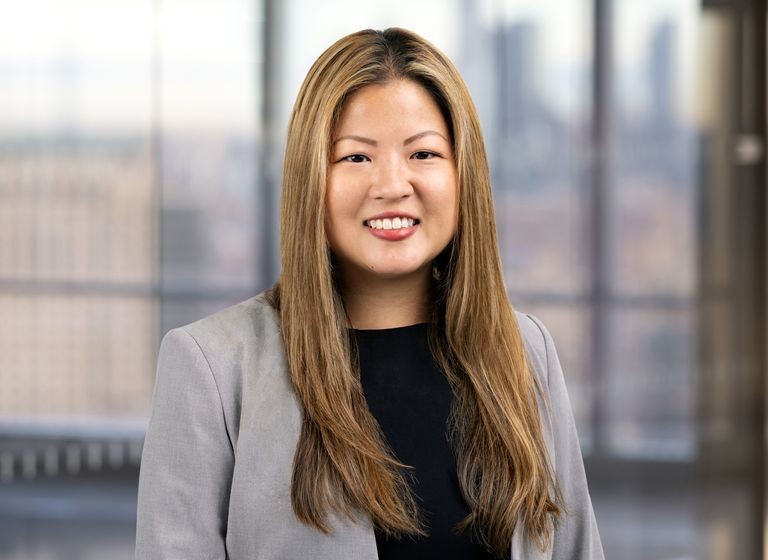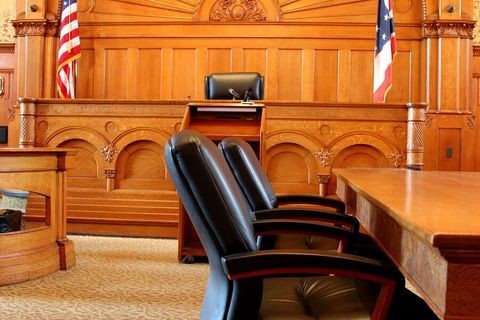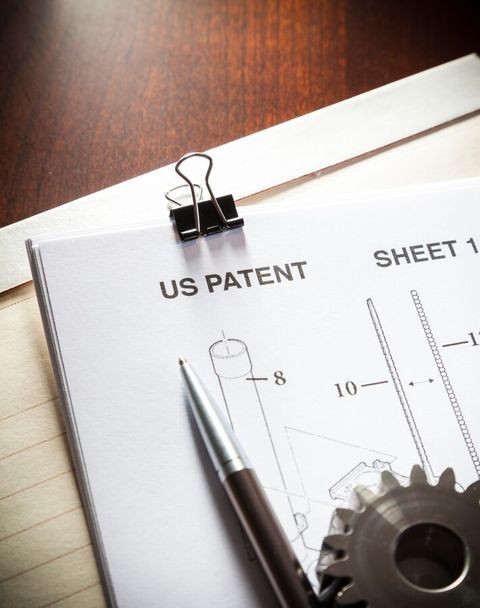Michelle Wang
Overview
Michelle Wang represents clients in intellectual property litigation and counseling. In addition to her background in biomedical engineering, she has experience in a broad range of technologies, including medical devices, life sciences, pharmaceuticals, disruptive technologies, and electronic devices, among others.
Career & Education
- University of Texas at Austin, B.S., with highest honors, Biomedical Engineering, 2009
- New York University School of Law, J.D., 2013
- New York
- U.S. Court of Appeals for the Federal Circuit
- U.S. District Court for the Southern District of New York
- U.S. District Court for the Eastern District of New York
- U.S. District Court for the Northern District of Texas
- U.S. District Court for the Southern District of Texas
- U.S. District Court for the Eastern District of Texas
- U.S. District Court for the Western District of Texas
- U.S. Patent and Trademark Office (USPTO)
- National Asian Pacific American Bar Association
- Asian American Bar Association of New York
- New York Intellectual Property Law Association
Michelle's Insights
Client Alert | 4 min read | 02.02.24
The Federal Circuit recently denied a petition for rehearing en banc in the much watched In re Cellect matter. The landmark panel decision determined how obviousness-type double patenting (“ODP”) is impacted when patent term adjustment (“PTA”) is added to the term of one or more patents in a family under 35 U.S.C. § 154(b), resulting in different terms for the family member patents that would otherwise expire on the same day.
Client Alert | 5 min read | 11.27.23
The ITC Continues to Play a Critical Role in Combating International Trade Secret Theft
Client Alert | 4 min read | 09.11.23
Press Coverage | 05.19.23
Representative Matters
- Represented pharmaceutical company in patent infringement action involving pre-filled syringe technology in the Northern District of New York.
- Represented pharmaceutical company in Hatch-Waxman patent action involving abuse-deterrent hydrocodone bitartrate extended-release tablets in the District of Delaware.
- Represented Rio Tinto in patent infringement action involving aluminum alloy in the District of Delaware.
- Defended Google in patent infringement action filed by a non-practicing entity involving wireless phone charging technology in the Western District of Texas.
- Represented Alamo Group in utility and design patent infringement actions involving heavy mulching machinery and components in the Southern District of Ohio.
- Represented Uni-Systems LLC in patent infringement and trade secret misappropriation action involving stadium retractable roof technology in the Eastern District of New York.
Michelle's Insights
Client Alert | 4 min read | 02.02.24
The Federal Circuit recently denied a petition for rehearing en banc in the much watched In re Cellect matter. The landmark panel decision determined how obviousness-type double patenting (“ODP”) is impacted when patent term adjustment (“PTA”) is added to the term of one or more patents in a family under 35 U.S.C. § 154(b), resulting in different terms for the family member patents that would otherwise expire on the same day.
Client Alert | 5 min read | 11.27.23
The ITC Continues to Play a Critical Role in Combating International Trade Secret Theft
Client Alert | 4 min read | 09.11.23
Press Coverage | 05.19.23
Recognition
- Commitment to Justice Awards – Legal Team Award, Her Justice, 2023
Michelle's Insights
Client Alert | 4 min read | 02.02.24
The Federal Circuit recently denied a petition for rehearing en banc in the much watched In re Cellect matter. The landmark panel decision determined how obviousness-type double patenting (“ODP”) is impacted when patent term adjustment (“PTA”) is added to the term of one or more patents in a family under 35 U.S.C. § 154(b), resulting in different terms for the family member patents that would otherwise expire on the same day.
Client Alert | 5 min read | 11.27.23
The ITC Continues to Play a Critical Role in Combating International Trade Secret Theft
Client Alert | 4 min read | 09.11.23
Press Coverage | 05.19.23
Insights
Implications of the America Invents Act: Reliance on Trade Secrets vs. Patents
|10.11.14
HIPLA/UH Annual Institute on Intellectual Property
IP Trio From Allen & Overy Leave For Crowell, As Firm Builds AI And Tech Expertise
|05.16.23
The National Law Journal
Michelle's Insights
Client Alert | 4 min read | 02.02.24
The Federal Circuit recently denied a petition for rehearing en banc in the much watched In re Cellect matter. The landmark panel decision determined how obviousness-type double patenting (“ODP”) is impacted when patent term adjustment (“PTA”) is added to the term of one or more patents in a family under 35 U.S.C. § 154(b), resulting in different terms for the family member patents that would otherwise expire on the same day.
Client Alert | 5 min read | 11.27.23
The ITC Continues to Play a Critical Role in Combating International Trade Secret Theft
Client Alert | 4 min read | 09.11.23
Press Coverage | 05.19.23






